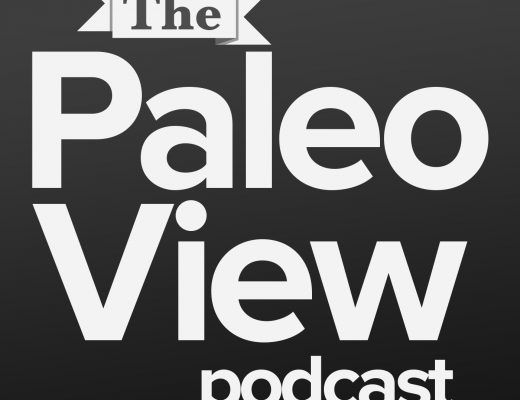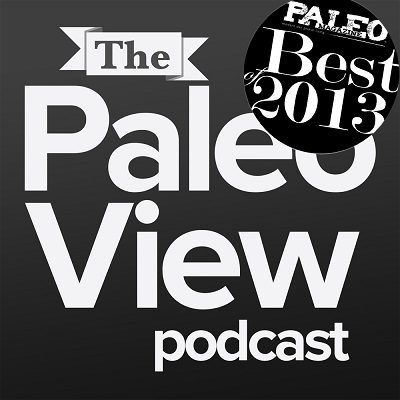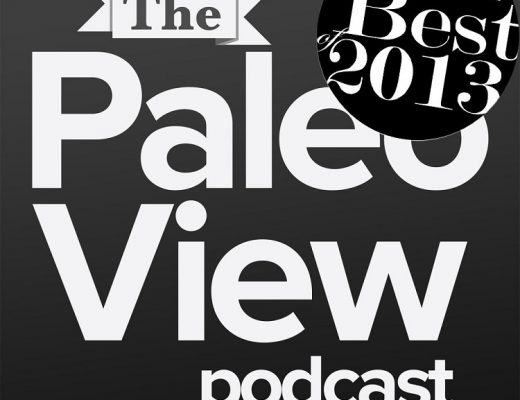Ep. 187, Genetic Predisposition for Disease
On this episode of The Paleo View, Stacy and Sarah discuss genetics versus epigenetics, and explore the science that is currently available on our predisposition to inherit diseases.
Click the picture above to be taken to iTunes
or download and listen by clicking the PodBean Player below
![]()
If you enjoy the show, please review it in iTunes!
The Paleo View (TPV), Episode 187, Genetic Predisposition for Disease
- Intro (0:00)
- News and Views (1:18)
- While Sarah is not 100% better, she has more energy than she has had in a long time
- Build-a-Bear now has sloths
- Sarah is getting ready for the Nutritional Therapy Association conference which is this upcoming weekend, and she will be in the Portland area when this show airs
- She is giving a talk on Friday morning and is on a panel discussion on Friday afternoon
- On Saturday she will just be hanging around the conference
- She is very excited because this trip because it is such a great conference
- Sarah will be talking about sleep this year, inspired by her passion for her Go to Bed program and the science behind the role that sleep plays on our overall health and wellness
- Sarah shared more about the prioritization of sleep
- Science with Sarah (11:33)
- Genetics vs. epigenetics – the definitions
- There are many mechanisms with genes that are influenced by diet and lifestyle
- Epigentics are inheritable as well – we do inherit some signals from both our parents’ and grandparents’ environments that control which genes are turned off and turned on
- We can override those on/off switches with our own diet and lifestyle choices, but the science helps us understand why there is a predisposition for certain diseases with epigenetics
- We only understand the very tip of the iceberg on this topic, and in isolated specific conditions, but it is a field of science that is exploding right now
- Sarah thinks that this scientific field will lead to tremendous advances in how we define an optimal human diet
- Turning the tide of public health by educating our children on diet and lifestyle choices
- Motivating healthier choices throughout the generations
- Questions & Answers (27:27)
- Emma – How exactly does gene expression work? Did my grandparents’ diet and lifestyle really help shape who I am? What about my great-grandparents? Do genes really turn on and off? How is this possible? If I were to marry, say, a lifelong smoker, how much of an impact would this genetic “tag” have on our offspring?
- There are both a genetic predisposition to inheriting a disease and an epigenetic predisposition to inheriting a disease
- For example, there are a few variants of genes that have much higher risks of autoimmune diseases
- Sarah shared more examples of gene variants that have a higher risk for various diseases
- We have this whole separate set of genes that are turned on and turned off based on diet and lifestyle, exposure to toxins, hormone environment, stress, sleep, infection, gut micro biome – and all of the gene expressions impacted from these variables are inheritable
- So yes, a lifelong smoker would create a genetic impact on their kids
- The paternal link is just as strong as the maternal link
- Sarah’s appreciation for how her health journey has educated her choices and brought her to where she is today
- Jessica – if family members have autoimmune conditions, should I adopt an AIP diet to prevent acquiring one?
- Stacy suggests trying to be aware of what the autoimmune trigger foods are and either avoid or limit them
- However, it may be hard to stay strict AIP based off of a genetic disposition
- If you start having symptoms it may motivate you to make those changes, but taking the approach to first build awareness around what the inflammatory and anti-inflammatory foods are, and consuming as much of those healing foods as possible
- Understand the key concepts behind the autoimmune protocol and why they work
- Learning about adequate nutrient levels
- Taking it from the nutrient density focus as opposed to the elimination focus with be hugely beneficial
- Don’t ignore the lifestyle factors and work on those
- There is a whole class of autoimmune diseases that occur with hormonal changes – partner with a healthcare provider who can help you monitor these changes
- Monitor how you feel, and look into health challenges if and when they arise
- Emma – How exactly does gene expression work? Did my grandparents’ diet and lifestyle really help shape who I am? What about my great-grandparents? Do genes really turn on and off? How is this possible? If I were to marry, say, a lifelong smoker, how much of an impact would this genetic “tag” have on our offspring?
- Thanks everyone for listening! We will be back again next week!
- Outro (57:25)





